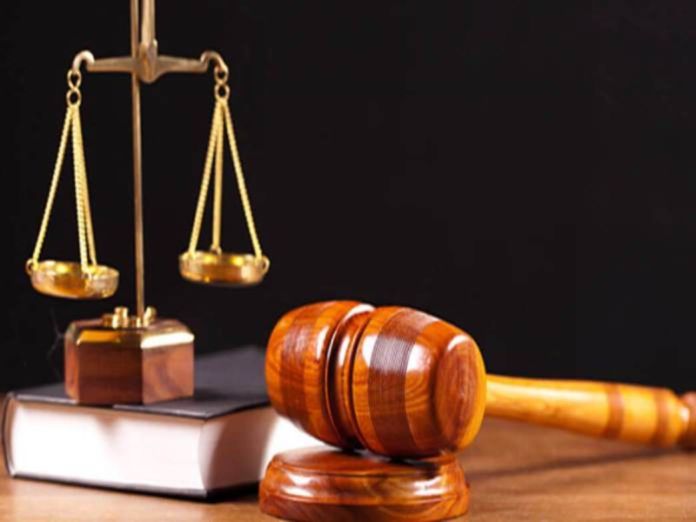By Yankuba Jallow
The five public prosecutors hired by the State to prosecute ex-director general of NIA Yankuba Badjie have appealed against the Court of Appeal judgment against them.
Badjie together with six others are facing 25 criminal counts before the high court including murder, torture and accessory after the fact of murder. They all pleaded not guilty to the charges and the prosecution called 33 witnesses to prove their cases. Badjie was supposed to open his defence, but he chose to make a ‘no case to answer submission’ which was unsuccessful. He requested from the high court to allow him to cross-examine some prosecution witnesses who were listed, but were not called. The application was objected by the prosecution team and the court ruled against him.
He filed an appeal before the Court of appeal against the two decisions and this was when the State filed a motion for a stay of proceeding which eventually was successful.
Badjie filed another appeal against the decision of the high court for staying the case. The Court of Appeal on the 8th October 2020 ruled in favour of Yankuba Badjie and ordered the high court to continue with the case.
The justices of the court of appeal unanimously set-aside the high court ruling and ordered for the case to resume. The appeal court went ahead to state that the stay was unreasonable, unjustifiable and has cost the other accused persons on their right to fair hearing.
Dissatisfied with the Court of Appeal decision, the public prosecutors headed by Lawyer Antouman AB Gaye has filed a notice of appeal before the Supreme Court seeking the apex court to set-aside the judgment of the Court of Appeal.
The five lawyers hired to prosecute the NIA 9 case are; Lawyer Antouman AB Gaye, Rachel Y. Mendy, Lamin S. Camara, Yassin Senghore and Combeh Gaye.
On the first ground of appeal, the prosecution contended that the Court of Appeal erred in law when it held that it had jurisdiction to determine the appeal filed by Yankuba Badjie. On the particulars of the error, the appellants (State) argued that sections 130 (1) and (3) of the Constitution which limits the automatic right to appeal does not support the decision of the Court of Appeal nor does it support the appeal of the Respondent (Yankuba Badjie). The appellants contended that the Court of Appeal failed to give consideration to the fact that Section 9 of the Court of Appeal of The Gambia Act provides for a time for appealing only for an appeal against a conviction and not interlocutory decisions.
“The Court of Appeal Rules do not provide for a form for an interlocutory appeal in a criminal case,” the lawyers representing the State contended.
The appellants argued that the Court of Appeal did not give consideration to the fact that Yankuba Badjie’s appeal was undesirable and would cause complete chaos to the trial and ought not to be allowed.
Additionally, the public prosecutors stated that the Court of Appeal failed to consider the authorities relied upon by Yankuba Badjie on the issue.
“The court failed to appreciate the fact that intelocutory criminal appeals are not provided for in our laws,” Lawyer AB Gaye wrote in the notice of appeal.
On the second ground of appeal, Gaye on behalf of the lawyers representing the State said the Court of Appeal erred in law and fact when it held that no cogent legal reasons were forwarded to explain and justify why the proceedings at the high court cannot continue pending the determinations of the appeals and thus makes the discretion to grant the order for stay of proceedings unjust and unreasonable.
On the particulars of the error, the prosecutors contended that the Court of Appeal failed to give due regard to the evidence before it.
“The grant of stay of proceedings at the high court is just and reasonable bearing in mind that the Respondent is the 1st accused person and was thus required by law to open his defence before the other accused persons,” Lawyer Gaye wrote.
Furthermore, Gaye argued that the Court of Appeal failed to give consideration to the facts and grounds contained in the affidavit in support of the motion for stay of proceedings and the affidavit in reply by Yankuba Badjie.
The senior lawyer said the Court of Appeal failed to take into consideration the fact that one of the appeals pending before it was in relation to the right of Badjie to cross-examine who had been listed by the prosecution in their list of witnesses.
“Cross-examination of prosecution witnesses cannot therefore take place after defence has commenced,” Lawyer Gaye stated.
Finally, on this ground of appeal, Gaye stated that the Court of Appeal failed to take into consideration the fact that the second appeal before it related to Yankuba Badjie’s alleged right to make a ‘no case submission’ upon the closure of the case of the prosecution.
“A no case submission cannot be heard and determined after the defence has opened its case particularly where the accused persons are jointly charged,” Gaye stated.
On the third ground of appeal, Gaye argued that the Court of Appeal misdirected itself on the law when it held that the exercise of discretion by the high court faced some legal hurdles and was challenged by Yankuba Badjie’s fundamental constitutional and crucial right to be presumed innocent.
On the final ground of appeal, Gaye said the judgment of the Court of Appeal is unreasonable and cannot be supported having regard to the evidence.

















